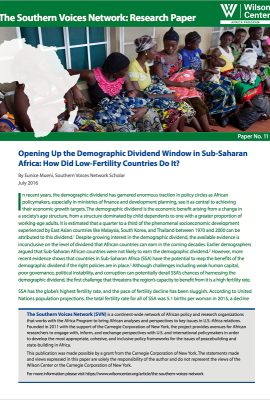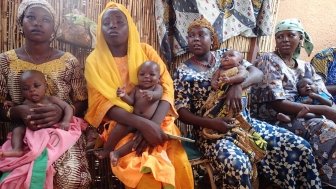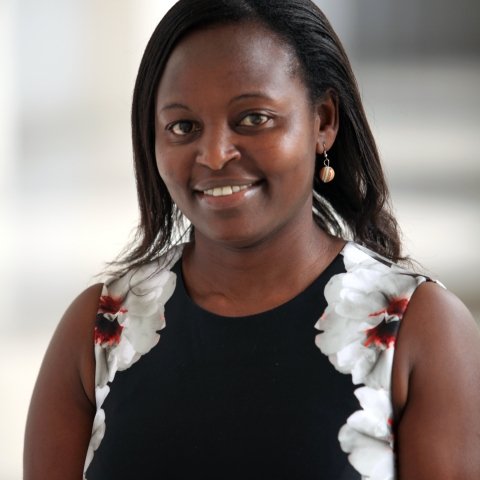Eunice Mueni Williams
Former Southern Voices Network Scholar
Professional Affiliation
Knowledge Translation Officer, African Institute for Development Policy (AFIDEP)
Expert Bio
Eunice M. Williams is a Knowledge Translation Officer at the African Institute for Development Policy (AFIDEP) in Nairobi, Kenya. Prior to this, Eunice worked for the Kenya Medical Research Institute-Wellcome Trust (KEMRI-WT) Research Initiative where she was part of the team that synthesized evidence which informed the revision of the Ministry of Health’s guidelines for neonatal and child care. Her research interests include understanding the fertility dynamics in African countries and how it relates to economic development, youth and their contribution to development, and reproductive health in general. Eunice has extensive experience in appraising quality of evidence of primary research studies, which she has applied in several systematic reviews she has conducted. She also has a wealth of experience in fieldwork and policy analysis on maternal and child health, family planning and population dynamics. She is part of the team at AFIDEP that is working with multiple countries in sub Saharan Africa to conduct studies to estimate the potential of harnessing the demographic dividend in these countries, and to develop policy options that can help countries reach their targets. So far, this studies have been conducted in Kenya, Uganda, Tanzania, Zambia, Mozambique, Botswana, Malawi, and Senegal. Eunice holds a Bachelor of Science degree in Nursing, Master in Public Health, and a Master of Arts in Population Studies. She also has training in Monitoring and Evaluation of Population and Health programmes.
She is a Southern Voices Network Scholar at the Wilson Center.
Wilson Center Project
Opening Up the Demographic Dividend Window in Sub-Saharan Africa: How Did the Low Fertility Countries Do it?
Project Summary
Currently, there is a growing interest in the demographic dividend and its potential to boost economic growth in Sub-Saharan African countries. The first step towards harnessing the demographic dividend is fertility decline, and the magnitude of the dividend is impacted by the pace of fertility change. Although there is evidence of fertility decline in most countries that have had persistently high fertility rates, these rates have declined at a very slow pace. A few countries in Southern Africa have, however, achieved fertility rates close to or below the replacement fertility level (2.1 children per woman).
How did they do it? Answering this question will provide lessons to other countries in the region on what strategies they can implement to rapidly reduce fertility and open the window of opportunity for harnessing the demographic dividend. The objective of this research project is to answer that question through literature review and secondary data analysis.
Major Publications
Musila, Ruth N., Mueni Eunice. (2014) “An Assessment of the Policy and Programmatic Evolution of the Community- Based Distribution of Family Planning Program in Kenya and Prospects for Its Sustainability”. MEASURE Evaluation PRH Working Paper Series, WP-14-144.
Pasipanodya Ian Machingura, Olawumi Adekola, Eunice Mueni, Omo Oaiya, Lars L Gustafsson, Richard F Heller. (2014), “Perceived value of applying Information Communication Technology to implement guidelines in developing countries; an online questionnaire study among public health workers. Online Journal of Public Health Informatics. 2014: 6(2); e180.
Insight & Analysis by Eunice Mueni Williams
- Publication
- Global Health
Opening Up the Demographic Dividend Window in Sub-Saharan Africa: How Did Low-Fertility Countries Do It?

- Video
- Maternal Health
Fertility Rates and the Demographic Dividend



